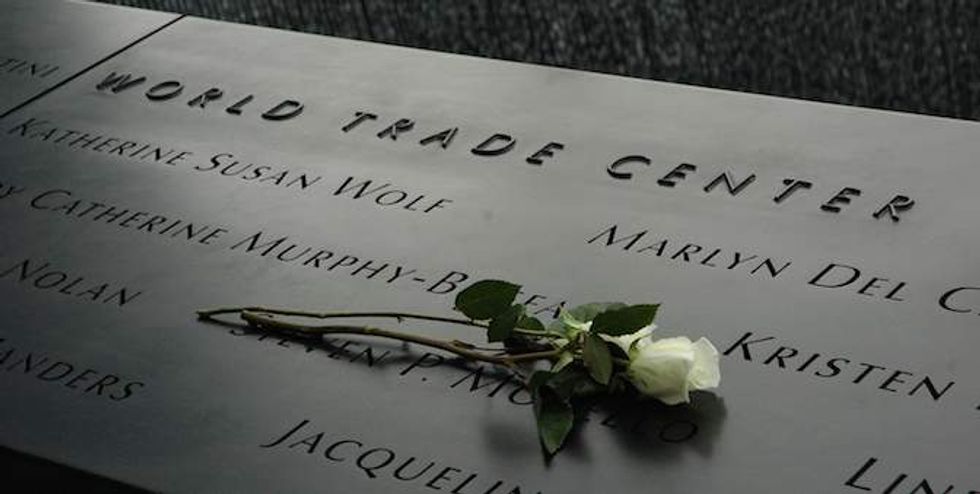
© 2024 Blaze Media LLC. All rights reserved.
Editor's Note: This article was originally published on April 29, 2015 regarding the national security risks from our nation’s immigration policy. The author’s arguments are relevant and timely following the June 12, 2016 terror attack in Orlando, Florida.
The American people deserve an answer to one common sense question: how many more stories of homegrown terror do we need to see before politicians get serious about the threat of homegrown terror and the irresponsible immigration policies that have engendered it?
As Mark Levin noted last week on his show, not a single presidential candidate has seriously addressed this issue. To be fair, Bobby Jindal, a likely but undeclared candidate, has touched on this issue and Ted Cruz has introduced legislation to strip the passports from those who fight for the Islamic State. But this issue has not received the attention it deserves given the existential threat of our suicidal immigration system and the fact that this self-immolation is so avoidable.
Much like any other community, Muslim immigrant communities can be law abiding and peaceful residents of this country. But unlike nearly any other group, they have a greater probability of being saturated with radical elements that can cultivate a climate leading to over 150 known cases of individuals attempting to join the Islamic State.
Following 9/11, where the hijackers were let into this country’s front door, one would have thought the U.S. would be judicious about vetting immigrants from volatile and violent parts of the world.
The front line in the war against terror is not nation building across the globe, it is our immigration system. Yet, as we’ve noted before, the level of student visas from Saudi Arabia has increased ten-fold, refugees from volatile countries have grown exponentially, and immigration from predominantly Muslim countries has doubled overall.
Hence, instead of following the common sense recommendations of the bipartisan 9/11 commission, politicians doubled down on risky immigration policies. Outside of the D.C. beltway it is simple logic that there will be a higher percentage of immigrants with Jihadist proclivities if they came from parts of the world where those views are prevalent. Once these immigrants are admitted and become citizens, they have the right to harbor those views like everyone else, but why should we irresponsibly admit those who are likely to represent a security risk? The more people with radical Islamic views who are allowed into the country, the more it will cultivate an environment that we are seeing today in Minneapolis.
After six more Somali immigrants from Minnesota were arrested for attempting to join up with ISIS, the U.S. Attorney for Minnesota sounded the alarm many of us have been ringing for quite some time. U.S. Attorney Andrew Lugar admitted this should not be dismissed as a few random instances of radicalism. “To be clear, we have a terror recruitment problem in Minnesota,” he declared.
While there are undoubtedly many peaceful individuals in this community, clearly there are more friends, neighbors, and religious leaders who are encouraging these un-American beliefs. Many of these religious leaders preach in mosques funded by terror-supporting governments. Just recently, Obama attended the opening ceremony of a $100 million mosque together with Turkey’s President Recip Erdogen, one of the most dangerous Sunni terror supporters in the Middle East. His government is funding this mosque on our own soil, and due to his radical ties one must question his motives.
For how much longer are we going to allow extreme political correctness stifle sound public policy?
In 2010, the co-chairs of the 9/11 Commission published a report showing how the homegrown terror threat had grown substantially since 2001. "The U.S. is arguably now little different from Europe in terms of having a domestic terrorist problem involving immigrant and indigenous Muslims as well as converts to Islam,” wrote Lee Hamilton and Tom Kean.
Obviously, the threat of homegrown terror mixed with cyber jihad and recruitment has only gotten worse in the ensuing five years. With control of both houses of Congress, one would think Republicans would address this area of “immigration reform” that should concern everyone. Republicans can pursue the following policies:
- Fix our broken refugee policies and limit the UN’s power of resettlement to ensure we are not letting in security threats.
- Implement a program similar to NSEERS (National Security Exit-Entry Registration System) in which non-immigrant visas from risky parts of the world must be monitored by a local ICE office. If someone is here on a student visa and drops out of college to work on creating bombs, we should know about it.
- The Visa Waiver Program Suspension Act (H.R. 5434), sponsored by Rep. Doug Collins (R-GA), which would suspend the Visa Waiver Program until we establish control over the number of terror threats we let into the country.
- The Expatriate Terrorist Act, sponsored by Sen. Ted Cruz (R-TX) and Rep. Steve King (R-IA), which would revoke the citizenship of those who fight for foreign terrorist organizations, such as ISIS.
It would be extremely politically perilous for Democrats to oppose these measures. Sadly, don’t expect Republicans to get serious about one of the biggest threats of our time until they hear from the people or until, God forbid, there is another terror attack on American soil.
Want to leave a tip?
We answer to you. Help keep our content free of advertisers and big tech censorship by leaving a tip today.
Want to join the conversation?
Already a subscriber?
Blaze Podcast Host
Daniel Horowitz is the host of “Conservative Review with Daniel Horowitz” and a senior editor for Blaze News.
RMConservative
more stories
Sign up for the Blaze newsletter
By signing up, you agree to our Privacy Policy and Terms of Use, and agree to receive content that may sometimes include advertisements. You may opt out at any time.
© 2024 Blaze Media LLC. All rights reserved.
Get the stories that matter most delivered directly to your inbox.
By signing up, you agree to our Privacy Policy and Terms of Use, and agree to receive content that may sometimes include advertisements. You may opt out at any time.



